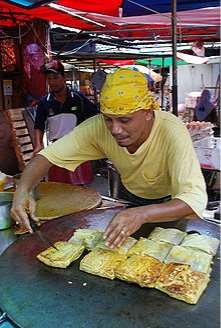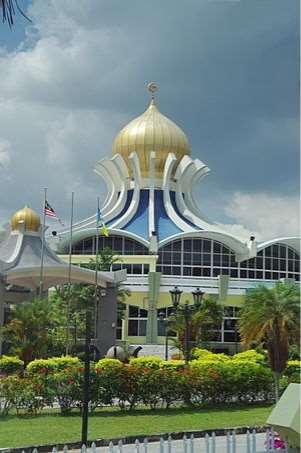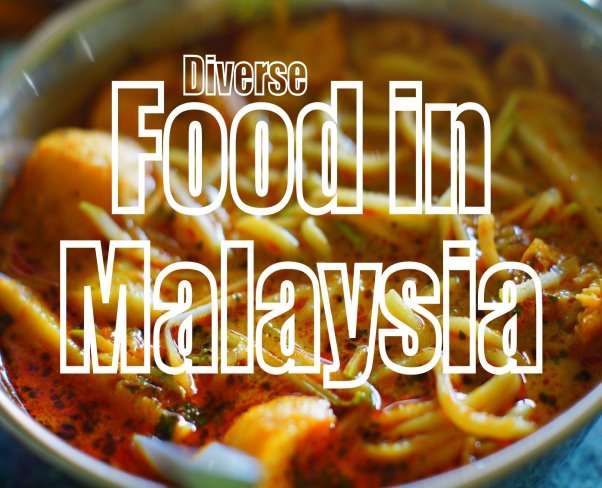
Submitted by – Harkomal Singh Khaira
Submitted to – Alen mataia
Student Id No – 21601024
MALAYSIAN CUISINE
Road nourishment – a cook get ready murtabak at a mamak slow down
Malaysian nourishment contains cooking traditions and practices found in Malaysia, and mirrors the multiethnic makeup of its population.[1]The overwhelming some portion of Malaysia’s masses can by and large be apportioned among three critical ethnic get-togethers: Malays, Chinese and Indians. Whatever is left of the indigenous social orders of Sabah and Sarawak in East Malaysia, the Orang Asli of Peninsular Malaysia, the Peranakan and Eurasian creole gatherings, and furthermore an essential number of outside pros and segregates. Accordingly of chronicled relocations, colonization by remote forces, and its topographical position inside its more extensive home locale, Malaysia’s culinary style in the present day is fundamentally a melange of customs from its Malay, Chinese, Indian, Indonesian and ethnic Bornean nationals, with overwhelming to light impacts from Thai, Portuguese, Dutch, and British foods, to give some examples. This brought about an orchestra of flavors, making Malaysian cooking profoundly perplexing and various.
Get Help With Your Essay
If you need assistance with writing your essay, our professional essay writing service is here to help!
Since Peninsular Malaysia imparts a typical history to Singapore, it is basic to discover adaptations of a similar dish crosswise over both sides of the outskirt paying little respect to place of birthplace, for example, laksa and chicken rice. Additionally as a result of their nearness, notable relocations and close ethnic and social family relationship, Malaysia offers culinary ties with Indonesia,[2] as both countries frequently share certain dishes, for example, satay, rendang and sambal.
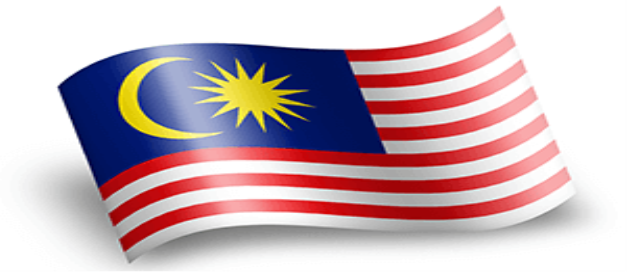
The Flag of Malaysia, otherwise called the (Malay: Jalur Gemilang (Stripes of Glory)), is made out of a field of 14 exchanging red and white stripes along the fly and a blue canton bearing a bow and a 14-point star known as the Bintang Persekutuan (Federal Star). The 14 stripes, of equivalent width, speak to the equivalent status in the alliance of the 13 part states and the government, while the 14 purposes of the star speak to the solidarity between these entities. The sickle speaks to Islam, the nation’s legitimate religion; the blue canton symbolizes the solidarity of the Malaysian individuals; the yellow of the star and bow is the illustrious shade of the Malay rulers. In blazon, the Malaysian banner is depicted as: “A standard Gules, seven bars Argent; the canton Azure accused of excrescent and mullet of fourteen focuses Or”. This signifies “a warning with seven level white stripes; the upper-left (crane) quarter is blue with a yellow melting away bow (i.e. horns indicating vile) and a yellow 14-pointed star”.
The banner of Malaysia, which was initially raised on 16 September 1963, started from the banner of the Federation of Malaya. Preceding the making of the national banner, each state in Malaya had its own particular banner, a large number of which are unaltered in configuration right up ’til today. At the point when the Federation of Malaya supplanted the fleeting Malayan Union, the organization government through the Federal Legislative Council required a plan challenge for another banner. Three banners were sent to the general population. The main banner had 11 white stars with two Malay kris (knifes) in the center against a blue setting. The second banner “concentric hover of 11 stars around crossed keris on a blue field”. The third “had 11 exchange red and white stripes and a yellow bow and a five-pointed star on a blue foundation in the upper left hand corner”. The third plan, by Mohamad Hamzah of the Public Works Department, was picked as the champ through an open survey held by The Malay Mail.[4] Since Malaya was battling the communists amid the Malayan Emergency, the five-pointed star had an amusing similarity to the communists’ images. Accordingly, the star was altered to suit six more focuses. The Malayan banner was endorsed by King George VI on 19 May 1950 and was initially brought up before Istana Selangor on 26 May 1950. On 31 August 1957, it was raised upon autonomy at Merdeka Square set up of the British Union Flag.
TRADATIONAL DISHES OF MALAYASIA
The main traditional dishes of Malaysia is rice dishes
Rice dishes
|
Name |
Region |
Type |
|
Nasi goreng pattaya |
Peninsular Malaysia |
Rice dish |
|
Nasi kandar |
Penang |
Rice dish |
|
Nasi kerabu |
Kelantan, Terengganu |
Rice dish |
|
Nasi lemak |
Malaysia (Popular in Brunei, Singapore, Riau Islands and Southern Thailand) |
Rice dish National dish of Malaysia |
NATIONAL FOOD OF MALAYSIA
Nasi lemak is a Malay fragrant rice dish cooked in coconut drain and pandan leaf. It is generally found in Malaysia, where it is viewed as the national dish; it is additionally prominent in neighboring nations, for example, Singapore; Indonesia (particularly in Eastern Sumatra), Brunei, and Southern Thailand.
The religion of Malaysia
Penang State Mosque in George Town, Penang.
Malaysia is a multicultural and multiconfessional nation. As of the 2010 Population and Housing Census, 61.3 percent of the populace rehearses Islam; 19.8 percent Buddhism; 9.2 percent Christianity; 6.3 percent Hinduism; and 1.3 percent conventional Chinese religions. The rest of represented by different religions, including Animism, Folk religion, Sikhism and other conviction systems. Numbers of self-portrayed agnostics in Malaysia are few; the state has gone under feedback from human rights associations for its oppression atheists.
Islam in Malaysia is spoken to by the Shafi’i adaptation of Sunni religious philosophy and jurisprudence.[3][4] Islam was presented by brokers landing from Arabia, China and India. It turned out to be solidly settled in the fifteenth century. The constitution makes Malaysia a common nation and ensures opportunity of religion, while building up Islam as the “religion of the Federation” to symbolize its significance to Malaysian society.[3][4] The ruler is for the most part observed as the shield of the confidence in the nation and individuals from the regal family may lose certain benefits in the event that they leave Islam and change over to another religion. Malaysian Chinese practice different beliefs: Mahayana Buddhism and the Chinese customary religion (counting Taoism). Hinduism is rehearsed by the greater part of Malaysian Indians. Christianity has built up itself in a few groups, particularly in East Malaysia. It is not fixing to a particular ethnic gathering. Different religions, for example, the Baha’i Faith and Sikhism likewise have followers in Malaysia.
Find Out How UKEssays.com Can Help You!
Our academic experts are ready and waiting to assist with any writing project you may have. From simple essay plans, through to full dissertations, you can guarantee we have a service perfectly matched to your needs.
View our academic writing services
Relations between various religious gatherings are for the most part very tolerant. Christmas, Chinese New Year, and Deepavali have been proclaimed national occasions close by Islamic occasions, for example, Muhammad’s birthday and so on. Different gatherings have been set up to attempt to advance religious comprehension among the diverse gatherings, with religious agreement seen as a need by Malaysian government officials. Be that as it may, Muslims are kept from changing over to different religions by law,[5] in spite of article 11 of the constitution pronouncing opportunity of religion. Limitations on religious flexibility exist, particularly for Muslims who are not permitted to lawfully change over to different religions, and are regularly constrained into recovery camps on the off chance that they endeavour to do.
GEOGRAPHY OF MALASYIA
The geography of Malaysia manages the physical and human geology of Malaysia, a Southeast Asian nation. There are two noteworthy parts to this nation, Peninsular Malaysia toward the west and East Malaysia toward the east, in extra various littler islands encompassing both landmasses. Peninsular Malaysia is arranged on the southernmost area of the Malay Peninsula, south of Thailand, north of Singapore and east of the Indonesian island of Sumatra; East Malaysia contains the majority of the northern piece of Borneo Island, with land outskirts imparted to Brunei toward the north and Indonesian Borneo toward the south.
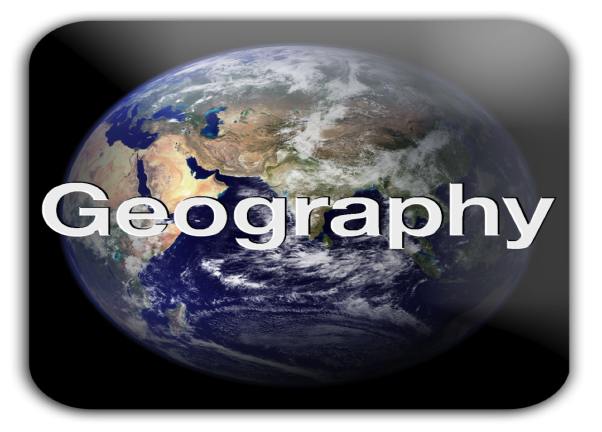
Geology

HISTORY INFLUNCES – Malaysia is situated on the Sunda retire, and is structurally dormant. The most established shakes in the nation date from 540 million years back, and are generally sedimentary. The most widely recognized type of shake is limestone, framed amid the Paleozoic Era. Limestone set down in East Malaysia amid the Tertiary time frame has since dissolved, and such disintegration shapes bowls of sedimentary rocks rich in oil and regular gas. The mountain runs in Malaysia were framed through orogenesis starting in the Mesozoic era.
The aggregate land territory of Malaysia is 329,613 square kilometers (127,260 sq mi), the 66th biggest nation on the planet as far as area.[6] It is the main nation to contain arrive on both terrain Asia and the Malay archipelago.[3] Peninsular Malaysia makes up 132,090 square kilometres (51,000 sq mi),[1] or 39.7% of the nation’s property region, while East Malaysia covers 198,847 square kilometres (76,780 sq mi), or 60.3%. From the aggregate land zone, 1,200 square kilometres (460 sq mi) or 0.37% is comprised of water, for example, lakes, waterways, or other inner waters. Malaysia has an aggregate coastline of 4,675 kilometres (2,905 mi), and Peninsular Malaysia has 2,068 kilometres (1,285 mi), while East Malaysia has 2,607 kilometres (1,620 mi) of coastline. Malaysia has the 29th longest coastline on the planet. The two particular parts of Malaysia, isolated from each other by the South China Sea, share a to a great extent comparative scene in that both West (Peninsular) and East Malaysia highlight beach front fields ascending to slopes and mountains.
HIS Malaysia is a Southeast Asian nation situated on vital ocean path that opens it to worldwide exchange and remote culture. Hinduism from India and Buddhism from China overwhelmed early territorial history, achieving their crest amid the rule of the Sumatra-based Srivijaya civilisation, whose impact reached out through Sumatra, Java, the Malay Peninsula and quite a bit of Borneo from the seventh to the thirteenth hundreds of years. Despite the fact that Muslims had gone through the Malay Peninsula as right on time as the tenth century, it was not until the fourteenth century that Islam first solidly settled itself. The selection of Islam in the fourteenth century saw the ascent of various sultanates, the most noticeable of which was the Sultanate of Malacca. Islam affected the Malay individuals, yet has likewise been impacted by them. The Portuguese were simply the principal European pilgrim forces to build up themselves on the Malay Peninsula and Southeast Asia, catching Malacca in 1511, trailed by the Dutch in 1641. In any case, it was the British who, after at first building up bases at Jesselton, Kuching, Penang and Singapore, at last secured their administration over the region that is currently Malaysia. The Anglo-Dutch Treaty of 1824 characterized the limits between British Malaya and the Netherlands East Indies (which progressed toward becoming Indonesia). A fourth period of outside impact was migration of Chinese and Indian labourers to address the issues of the pioneer economy made by the British in the Malay Peninsula and Borneo.
Japanese intrusion amid World War II finished British mastery in Malaysia. The consequent control of Malaya, North Borneo and Sarawak from 1942 to 1945 unleashed patriotism. In the Peninsula, the Malayan Communist Party waged war against the British. An extreme military reaction was expected to end the revolt and achieve the foundation of a free, multi-racial Federation of Malaya on 31 August 1957. On 31 August 1963, the British domains in North Borneo and Singapore were allowed autonomy and shaped Malaysia with the Peninsular states on 16 September 1963. Roughly two years after the fact, the Malaysian parliament passed a bill to separate Singapore from the Federation.
A showdown with Indonesia happened in the mid 1960s. Race revolts in 1969 prompted the burden of crisis manage, and an abridgement of political life and common freedoms which has never been completely turned around. Since 1970 the “National Front coalition” headed by United Malays National Organization (UMNO) has administered Malaysia. Monetary development drastically expanded expectations for everyday comforts by the 1990s. This developing flourishing limited political discontent.
SOCIO ECONOMIC
Since 1957, Malaysia’s monetary improvement has been a record of development, change, and of basic change. More than 75 for each penny of its total national output (GDP) originate from the assembling and administrations segments. In any case, Malaysia is stuck in a centre salary trap and is confronting challenges on the financial and political front. In June 2010, Prime Minister Najib Razak disclosed the tenth Malaysian Plan (2011-15) to graph the improvement of Malaysia from a centre to high-wage country. This production speaks to a strategy situated stocktake and assessment by scholastics, policymakers, and b ements, display work-in-advance attempts, and a portion without bounds challenges confronting the country in its interest to accomplish a grew high-wage nation status. Business individuals on Malaysia’s accomplish. Independent company Sector in Kuala Lumpur According to the Small and Medium Enterprise Corporation Malaysia (SMECorp, 2011), a private company is characterized as a substance which: • Employs less than 20 all day specialists and procures a yearly income of under RM1million (on the off chance that it is a specialist co-op), or • Employs less than 50 all day labourers and wins under RM10 million (on the off chance that it is a producer). Thus, the independent company class likewise incorporates smaller scale organizations which are firms utilizing less than 5 all day labourers and gaining under RM200,000 per annum (specialist co-ops) or RM250,000 per annum (producers). Private ventures in Malaysia are typically either sole proprietorships or organizations, and family-run. Ventures upheld by these specialty units are for the most part administration situated, for example, retail, wellbeing and magnificence, neighbourhood exchanging, and neighbourliness. Particular sub-segments which are most well known incorporate sundry stores, magnificence salons, office supplies and inside enhancement, clothing, and eateries. The organizations must be enrolled with no less than two assemblages of specialist: the Companies Commission at the government level, and the civil chamber which controls their individual zones of operation – for this situation, the Kuala Lumpur City Hall. There are likewise other related organizations in charge of their welfare, for example, • The Small and Medium Enterprise Corporation, • The Association of Small Businesses and Petty Traders, and • Respective Members of Parliament. As of late the quantity of issues concerning independent ventures has risen in Malaysia, particularly exchanging without permit and red tape in the permit application prepare. Albeit national measurements concerning these issues are not promptly accessible, comparable perceptions about bureaucratic obstructions have been made by different specialists on Malaysian private companies (Saleh and Ndubisi, 2006; Syed et al., 2011). For example, Syed et al. (2011) find in their overview of 166 sustenance makers in Malaysia that bureaucratic obstructions come next just to budgetary hindrances as an obstacle to development among neighbourhood SMEs. To counter illicit exchanging, the experts have reacted with discontinuous attacks, reallocations and even lawful indictments, however the procedure has not been exceptionally powerful in battling the issue. While legislators consider presenting more reformatory measures, the brokers themselves trust that arrangements lie in more prominent adaptability and less Globalization and Socio-financial Development in Malaysia: Wither Small Businesses? Asian Journal of Business and Accounting, 5(1), 2012 113 organization. They contend that huge numbers of the issues can be effectively settled if applications are handled quicker and all the more straightforwardly. In spite of these issues, the segment remains an imperative part in Malaysia’s monetary condition. Private ventures represent 98 for every penny of aggregate organizations in Malaysia and the business openings they offer have contributed significantly to neediness decrease from 16.5 for each penny in 1990 to 5 for each penny in 2006 (UNDP, 2007). Sadly, in a few parts, the expansion in new businesses has not been joined by changes in execution. Because of expanding difficulties and dangers in a very focused condition, private ventures frequently think that its hard to manage their operations. The present review analyzes a standout amongst the most aggressive private venture areas in Malaysia, i.e. sustenance court operation. The administrators are entrepreneurs of eating outlets in shopping and office edifices, and additionally other open ranges, for example, healing facilities, transport and railroad stations, lodging bequests and recreational parks. They have a wide and changed client base, running from understudies to youthful officials to beneficiaries, every one of whom share a comparable inclination for helpful, sensibly evaluated, crisply cooked dinners.
CULTURE OF MALASYIA
Malaysia’s food mirrors the multiethnic cosmetics of its populace, and is characterized by its differences. Many societies from Malaysia and the encompassing ranges have significantly influenced Malaysian cooking, with solid impact from Malay, Chinese, and Indian, Thai, Javanese, and Sumatran foods. Expressions and music have a long convention in Malaysia, with Malay workmanship going back to the Malay sultanates. Customary craftsmanship was focused on fields, for example, cutting, silversmithing, and weaving. Islamic taboos confined fine art portraying people until the mid-twentieth century. Performing expressions and shadow manikin shows are prevalent, and frequently indicate Indian impacts. Different impacts can be found in design, from individual societies in Malaysia and from different nations. Extensive current structures have been manufactured, including the tallest twin structures on the planet, the Petronas Twin Towers. Malaysian music has an assortment of birthplaces, and is to a great extent based around percussion instruments. Much early Malaysian writing depended on Indian legends, which stayed unaltered even as Malays changed over to Islam; this has extended in late decades. English writing stayed limited to the higher class until the landing of the printing press. Privately made Chinese and Indian writing showed up in the nineteenth century.
Cooking is regularly partitioned along ethnic lines, however a few dishes exist which have blended nourishments from various ethnicities. Each real religious gathering has its real blessed days proclaimed as official occasions. Official occasions vary by express; the most far reaching one is Merdeka day which commends the freedom of Malaya. Despite the fact that celebrations regularly come from a particular ethnic foundation, they are praised by all individuals in Malaysia. Conventional games are
well known in Malaysia, while it has turned into a powerhouse in universal games, for example, badminton. Malaysia facilitated the Commonwealth Games in 1998, the main Commonwealth Games where the light went through a larger number of nations than England and the host. The Malaysian government has made the stride of characterizing Malaysian Culture through the “1971 National Culture Policy”, which characterized what was viewed as official culture, basing it around Malay culture and coordinating Islamic impacts. This particularly influenced dialect; just Malay writings are viewed as official social writings. Government control over the media is solid, and most media outlets are identified with the legislature somehow.
Background
Malaysia comprises of two unmistakable topographical areas: Peninsular Malaysia and East Malaysia. Malaysia was framed when the Federation of Malaya converged with North Borneo (today the area of Sabah), Sarawak, and Singapore (withdrew 1965) in 1963,[1] and social contrasts amongst Peninsular and East Malaysia remain. Amid the arrangement of Malaysia, official power was vested in the Perikatan (later the Barisan Nasional) coalition of three racially based political gatherings, to be specific the United Malays National Organization (UMNO), Malaysian Chinese Association (MCA), and Malaysian Indian Congress (MIC). UMNO has overwhelmed the coalition from its inception. Although Islam is the official state religion, the Constitution of Malaysia ensures flexibility of religion.
Ethnic groups
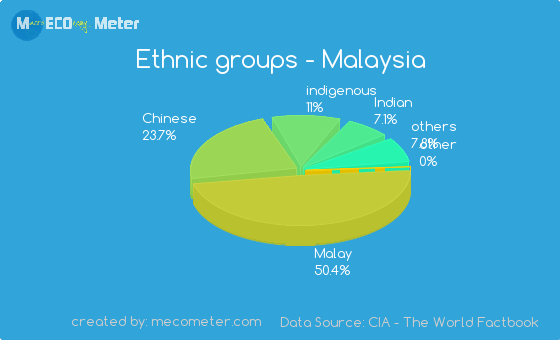
Malaysia is a multi-ethnic, multicultural, and multilingual society, and the numerous ethnic gatherings in Malaysia keep up isolated social identities.[5] The general public of Malaysia has been depicted as “Asia in miniature”.[6] The first culture of the region originated from its indigenous tribes, alongside the Malays who moved there in antiquated circumstances. Significant impact exists from the Chinese and Indian societies, going back to when exchange with those nations started in the region. Different societies that vigorously impacted that of Malaysia incorporate Persian, Arabic, and British. The structure of the legislature, alongside the racial adjust of force created by the possibility of a social contract, has brought about minimal impetus for the social osmosis of ethnic minorities in Malaya and Malaysia.[7] The administration has truly made little qualification between “Malay culture” and “Malaysian culture”.
Arts
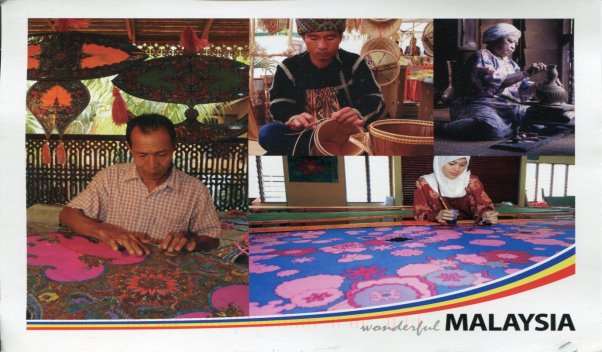
Routine Malaysian workmanship is generally centred around the strengths of cutting, weaving, and silversmithing.[22] Traditional craftsmanship ranges from handwoven bushel from nation zones to the silverwork of the Malay courts. Ordinary gems included beautiful kris and bug nut sets. Rich materials known as Songket are made, and traditional planned batik surfaces. Indigenous East Malaysians are known for their wooden spreads. Malaysian craftsmanship has amplified similarly starting late, as before the 1950s Islamic taboos about drawing people and animals were strong.[23]Textiles, for instance, the batik, songket, pua kumbu, and tekat are used for improvements, habitually weaved with a canvas or case. Customary pearls was delivered utilizing gold and silver adorned with gems, and, in East Malaysia, calfskin and touches were used to a comparable effect.
CULTURE OF MALASYIA
The lifestyle of Malaysia draws on the changed social orders of the various people of Malaysia. The essential people to live in the zone were indigenous tribes that still remain; they were trailed by the Malays, who moved there from domain Asia in old conditions. Chinese and Indian social effects made their check when trade began with those countries, and extended with development to Malaysia. Distinctive social orders that overwhelmingly influenced that of Malaysia fuse Persian, Arabic, and British. The an extensive variety of ethnicities that at present exist in Malaysia have their own particular exceptional and unmistakable social identities, with some half breed. Expressions and music have a long tradition in Malaysia, with Malay workmanship backpedaling to the Malay sultanates. Ordinary workmanship was centred around fields, for instance, cutting, silversmithing, and weaving. Islamic taboos bound gem depicting individuals until the mid-twentieth century. Performing expressions and shadow puppet shows are notable, and consistently exhibit Indian effects. Distinctive effects can be found in outline, from individual social orders in Malaysia and from various countries. Unfathomable current structures have been built, including the tallest twin structures on the planet, the Petronas Twin Towers. Malaysian music has a grouping of beginning stages, and is by and large based around percussion instruments. Much early Malaysian composition relied on upon Indian adventures, which remained unaltered even as Malays changed over to Islam; this has reached out in late decades. English composition remained restricted to the higher class until the passage of the printing press. Secretly made Chinese and Indian written work appeared in the nineteenth century.
ENVIRONMENT OF MALASYIA
The earth of Malaysia alludes to the biotas and topographies that constitute the indigenous habitat of this Southeast Asian country. Malaysia’s biology is megadiverse, with a biodiverse scope of vegetation found in different ecoregions all through the nation. Tropical rainforests envelop between 59% to 70% of Malaysia’s aggregate land territory, of which 11.6% is pristine. Malaysia
Has the world’s fifth biggest mangrove range, which adds up to over an a large portion of a million hectHuman intercession represents a critical risk to the regular habitat of this nation. Agribusiness, ranger service and urbanization add to the obliteration of woodlands, mangroves and other flourishing biological systems in the country. Ecosystems and scenes are drastically modified by human improvement, including the development of streets and damming of rivers.[6] Geographical wonders, for example, avalanches and flooding in the Klang Valley, alongside murkiness, come from far reaching deforestation. Inconspicuous environmental change happens as an immediate consequence of air contamination and the nursery impact, which thusly is brought on by the emanation of nursery gasses. Low-lying ranges close to the ares (more than 1.2 million acres). Coastline of Sabah and Sarawak are under risk from ebb and flow ocean level rise.
CLIMATE
Malaysia lies along the main parallel north to the seventh parallel north circles of degree, by and large proportional to Roraima (Brazil), the Democratic Republic of the Congo and Kenya. As showed by the Köppen air portrayal structure, Malaysia has a tropical rainforest air due to its closeness to the equator. The country is hot and sticky enduring as the year progressed, with a typical temperature of 27 °C (80.6 °F) and no change in the yearly temperature. The country experiences two tempest seasons, the Northeast Monsoon and the Southwest Monsoon. The Northeast Monsoon passes on generous precipitation toward the east shore of Peninsular Malaysia and western Sarawak, while the Southwest Monsoon infers dryer conditions all through the country except for Sabah. In the midst of the Southwest Monsoon, most states experience immaterial precipitation as a result of the steady aerates and cools in the region and the Sumatran mountain run, which accomplishes the rain shadow affect. Sabah experiences more precipitation in perspective of the tail effect of tempests in the Philippines. The urban warmth island effect is achieved by overdevelopment and general human activities in the urban groups of Malaysia.
Malaysia possesses over a thousand sorts of fowls, vertebrates, snakes and frightening little animals. It is possible to spot exceptional animal species in the midst of experiencing Malaysia. For instance, elephants, orangutans, tigers, panthers, monkeys, rhino’s, Malaysian sun bears, crocodiles, and ungulates occur in Malaysia
INNOVATION OF MALASYIA
Malaysia is viewed as an upper centre wage nation. The Najib Razak coalition government appraises that 6% yearly development is important to achieve high-wage status by 2020. This is a fairly higher rate than both the normal for the earlier decade and the World Bank’s projection for 2016 and 2017 of around 4.2% development. ‘A more prominent concentrate on development will be important to reach [the government’s] objective. Advancement for comprehensive and manageable improvement has as of late turned into a generally talked about range of open arrangement. Elements, for example, low homestead efficiency, expanding wellbeing related issues, cataclysmic events, natural issues and fiscal swelling were viewed as the key focuses to address. In 2014, the administration propelled transdisciplinary explore gifts with the goal of including societal advantages among the execution criteria at Malaysia’s exploration colleges and giving motivators to advance science in support of neediness easing and feasible development.
On 16 November 2016, Malaysia confirmed the Paris Agreement. As per the World Resources Institute, Malaysia contributed around 0.9% of worldwide nursery gas emanations in 2012, considering land-utilize changes and ranger service. ‘In spite of the fact that Malaysia stays focused on decreasing its carbon emanations by 40% by 2020 more than 2012 levels, as promised by the Malaysian leader at the atmosphere summit in Warsaw in 2013, it confronts developing supportability challenges’.
In January 2014, Selangor, the most created of Malaysia’s unified states, experienced water deficiencies. These were brought about by high contamination levels and the drying of stores as an outcome of abuse. Arrive clearing and deforestation is as yet real worries, because of avalanches and populace relocations. Malaysia is the world’s second-greatest maker of palm oil Improvement of endogenous research. The legislature is quick to create endogenous research, to lessen the nation’s dependence on modern research embraced by outside multinational organizations. By financing graduate review, the administration multiplied enrolment in PhD programs in the vicinity of 2007 and 2010 to 22,000. It has likewise acquainted motivating forces with urge ostracizes to come back to Malaysia through the Returning Expert Program and plans to wind up distinctly the 6th biggest goal for worldwide college understudies by 2020. It is trusted that the making of the ASEAN Economic Community in 2015 will support logical co-operation among part countries. The making of these examination colleges came about because of the administration’s advanc
Cite This Work
To export a reference to this article please select a referencing style below:
Give Yourself The Academic Edge Today
- On-time delivery or your money back
- A fully qualified writer in your subject
- In-depth proofreading by our Quality Control Team
- 100% confidentiality, the work is never re-sold or published
- Standard 7-day amendment period
- A paper written to the standard ordered
- A detailed plagiarism report
- A comprehensive quality report
Essay Writing Service
Essay Writing
Service
AED558.00
Approximate costs for Undergraduate 2:2
1000 words
7 day delivery
Order An Essay TodayDelivered on-time or your money back

1856 reviews


